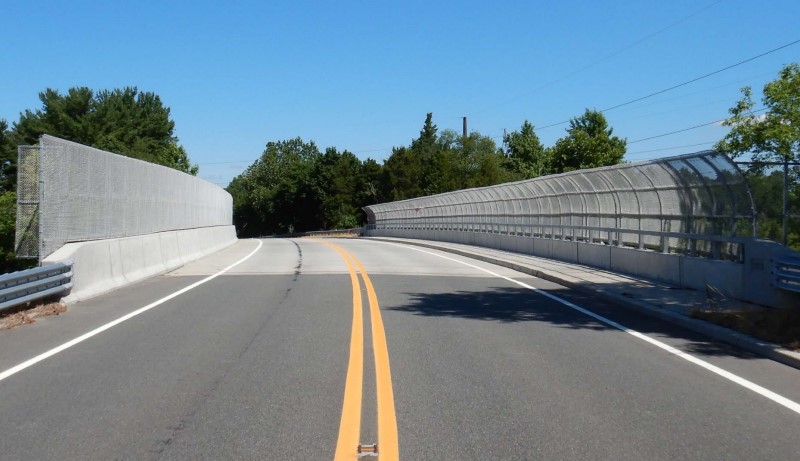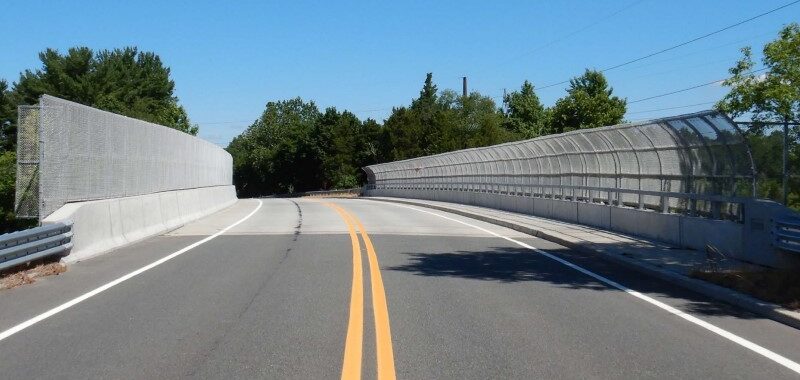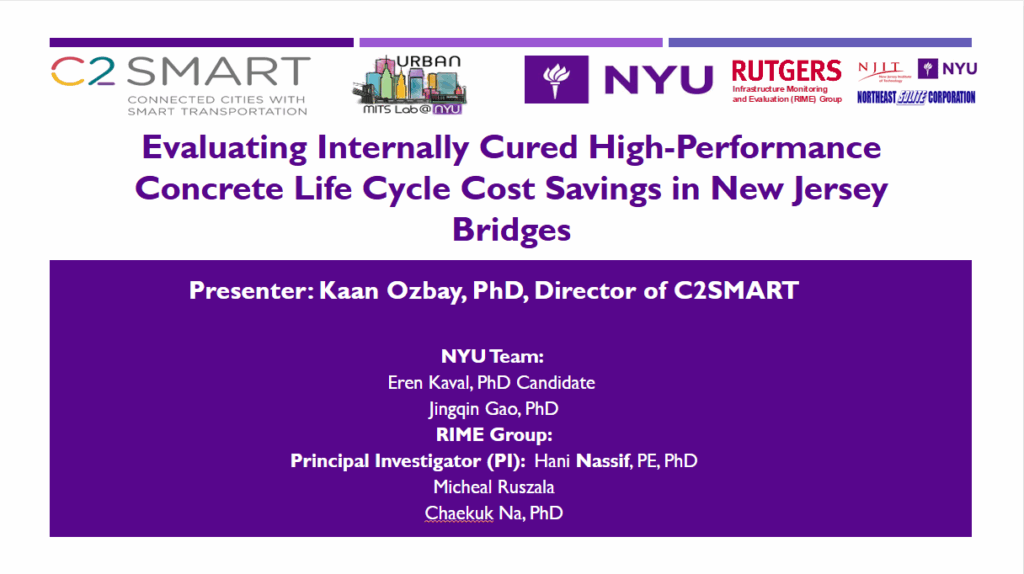Presenter: Kaan Ozbay
Organization: New York University
INFRASTRUCTURE

Abstract:
To combat the high costs and disruption caused by deteriorating bridges in New Jersey, our research investigated the long-term value of Internally Cured High-Performance Concrete (HPIC). By incorporating prewetted lightweight fines that release internal moisture during hydration, HPIC creates a significantly more durable and less permeable surface that extends service life by limiting self desiccation, early age shrinkage, and reducing microcracking. In collaboration with the NJDOT, our joint team from NYU C2SMART Center and Rutgers’ RIME Lab conducted a comprehensive life cycle cost analysis supported by NJDOT feedback on service lives and costs. Since HPIC is a newer material and key inputs vary by supplier and project, including mix premiums, dosage, logistics, maintenance schedules and service life, instead of a deterministic approach, we employed a stochastic model to reflect this variability and how uncertainty impacts the results. Our preliminary findings showed that despite a higher initial investment, HPIC generates substantial long-term savings up to 40% in agency and 45% in total costs . This project delivers clear, evidence-based guidance for adopting HPIC to deliver durable, lower cost bridge decks in New Jersey.
Dr. Kaan Ozbay joined Civil and Urban Engineering at NYU Tandon School of Engineering as a tenured full Professor in 2013. He is the founding Director of the C2SMART Center at NYU Tandon School of Engineering which was established in 2017. Prior to that, Professor Ozbay was a tenured full Professor at Rutgers University’s Department of Civil and Environmental Engineering where he joined as an Assistant Professor in July 1996. In 2008, he was a visiting scholar at the Operations Research and Financial Engineering (ORFE) Department at, Princeton University. Dr. Ozbay is the recipient of several awards including the prestigious National Science Foundation (NSF) CAREER award, IBM faculty award, INFORMS Franz Edelman Finalist Award, in addition to several best paper and excellence in research awards. His research interests in transportation cover a wide range of topics including data-driven AI/ML applications in smart cities, development and calibration of large-scale complex transportation simulation models. He has co-authored 4 books and published approximately 500 refereed papers in scholarly journals and conference proceedings. Prof. Ozbay is also an Associate Editor of the ITS journal and serves as the Associate Editor of Networks and Spatial Economic journal and Transportmetrica B: Transportation Dynamics journal. Since 1994, Dr. Ozbay, has been the Principal Investigator and Co-Principal Investigator of 125 research projects funded at a level of more than $35M by USDOT, National Science Foundation, NCHRP, NJDOT, NY State DOT, NYC DOT, New Jersey Highway Authority, FHWA, VDOT, Dept. of Homeland Security, among others.


